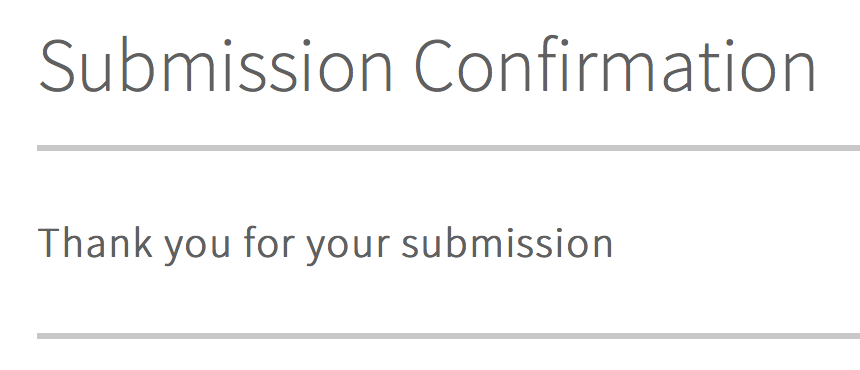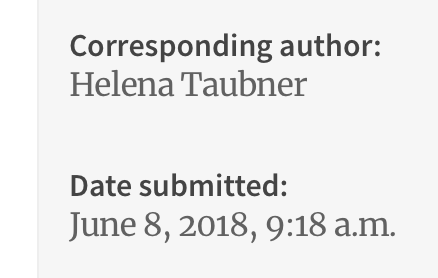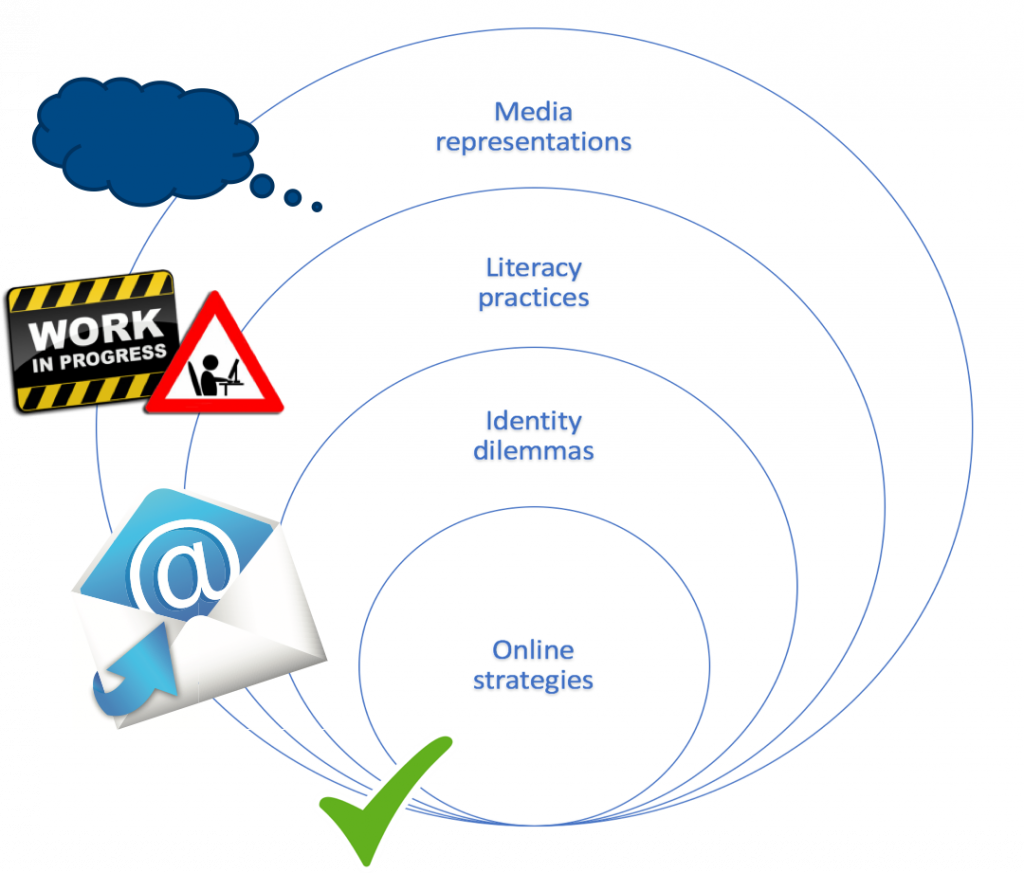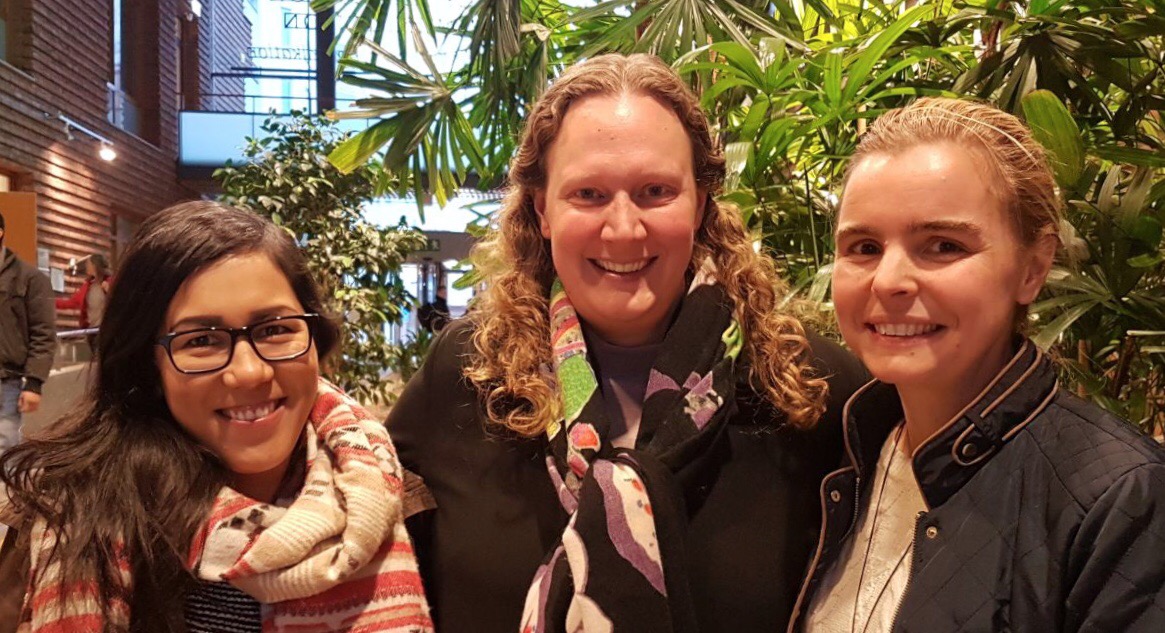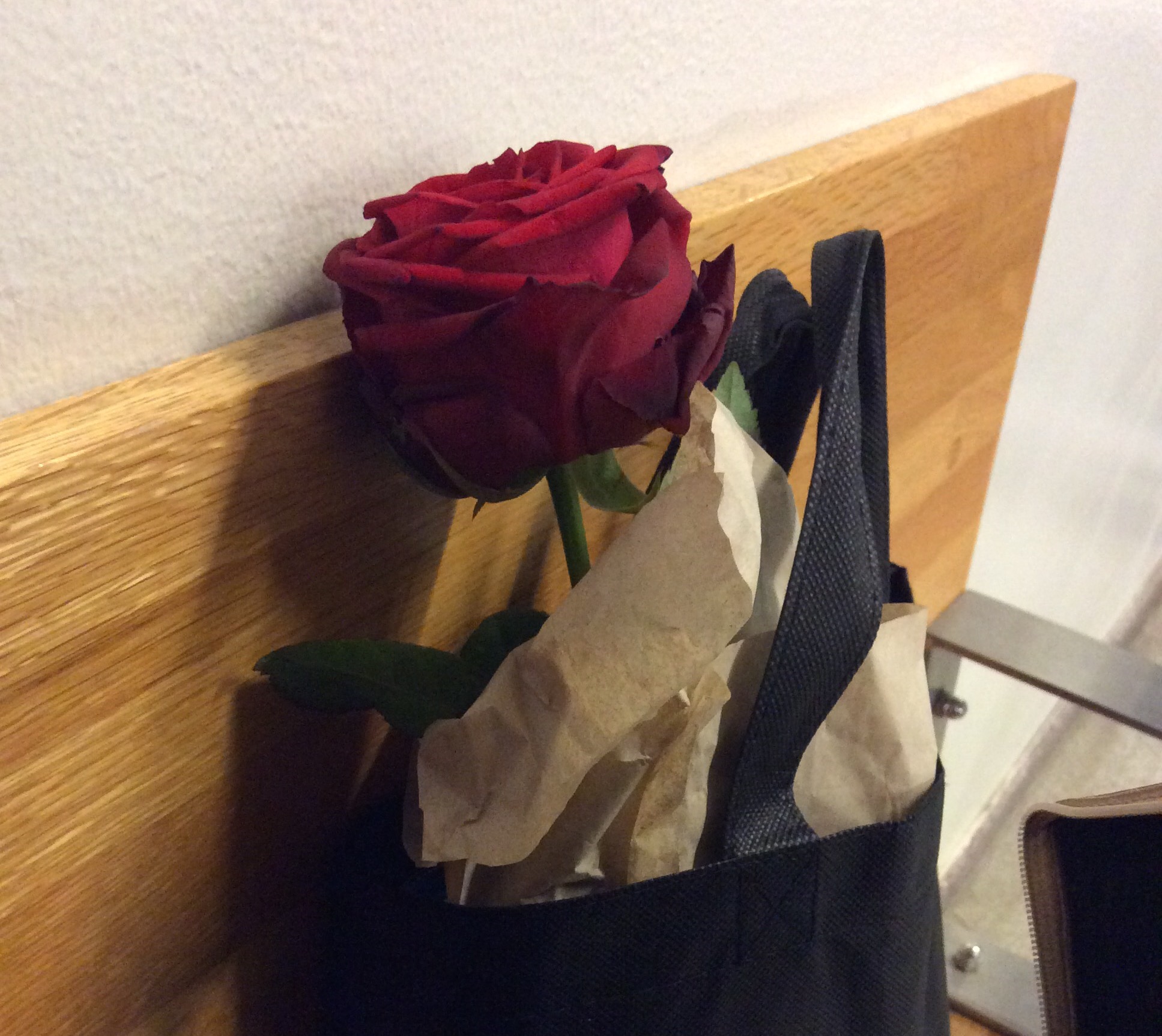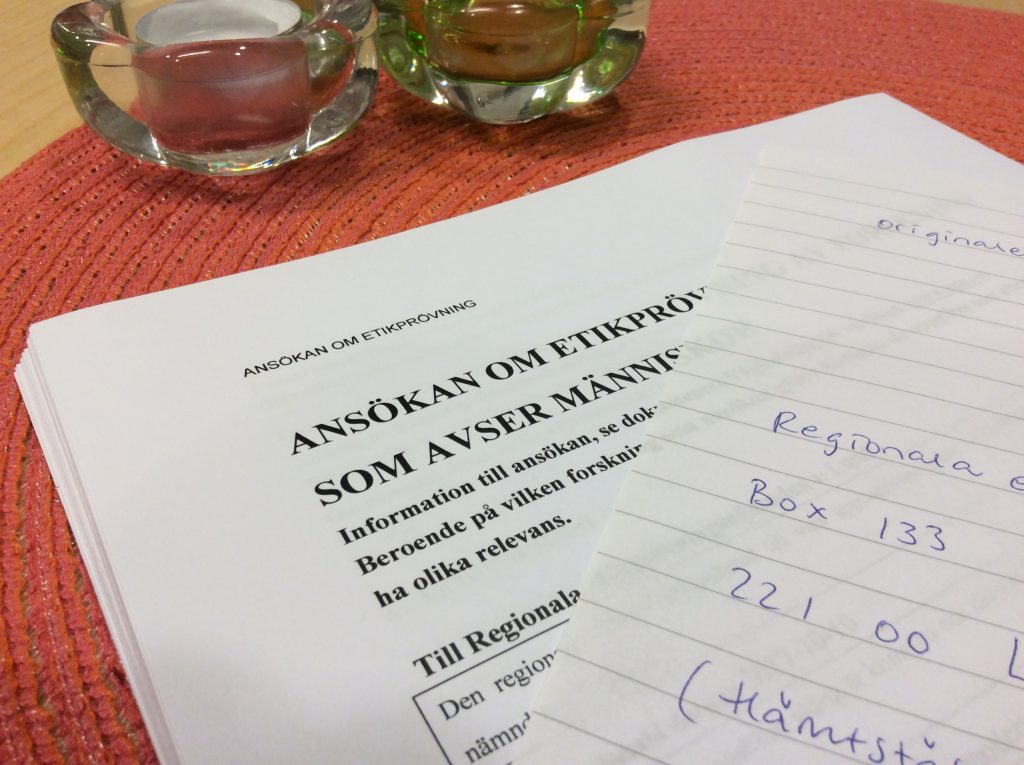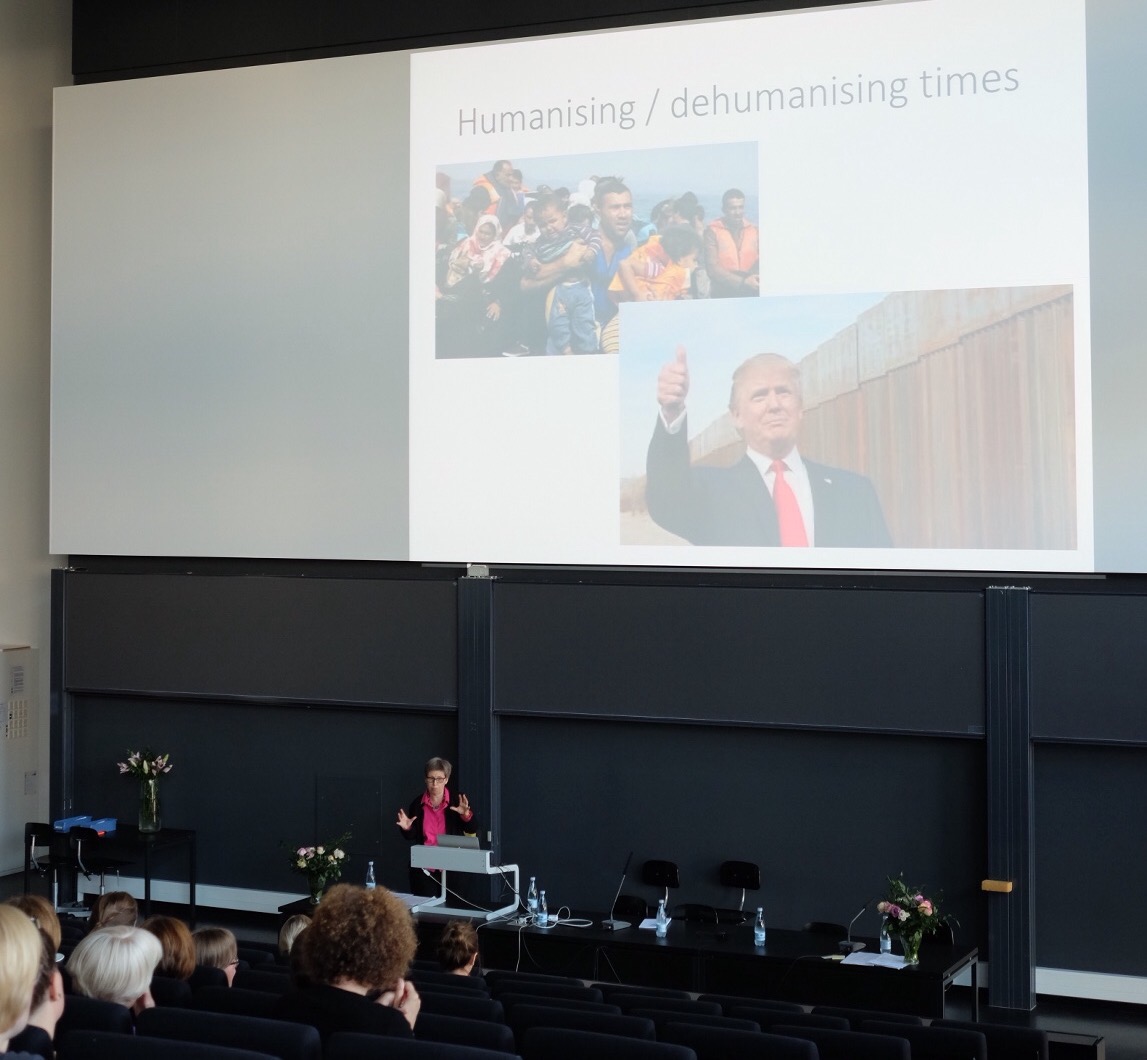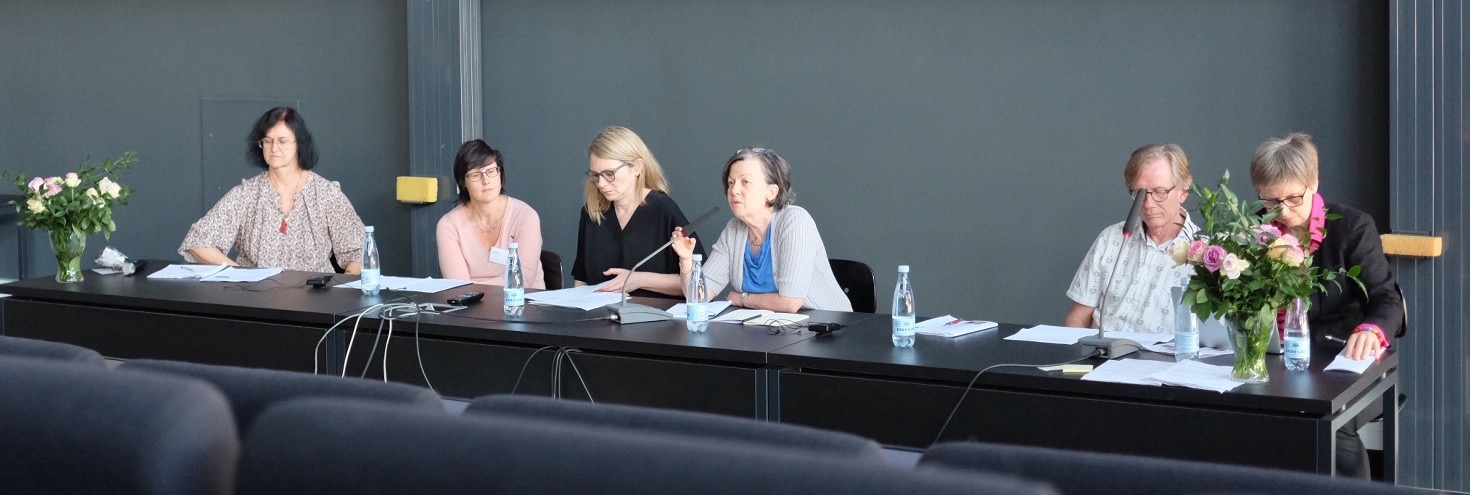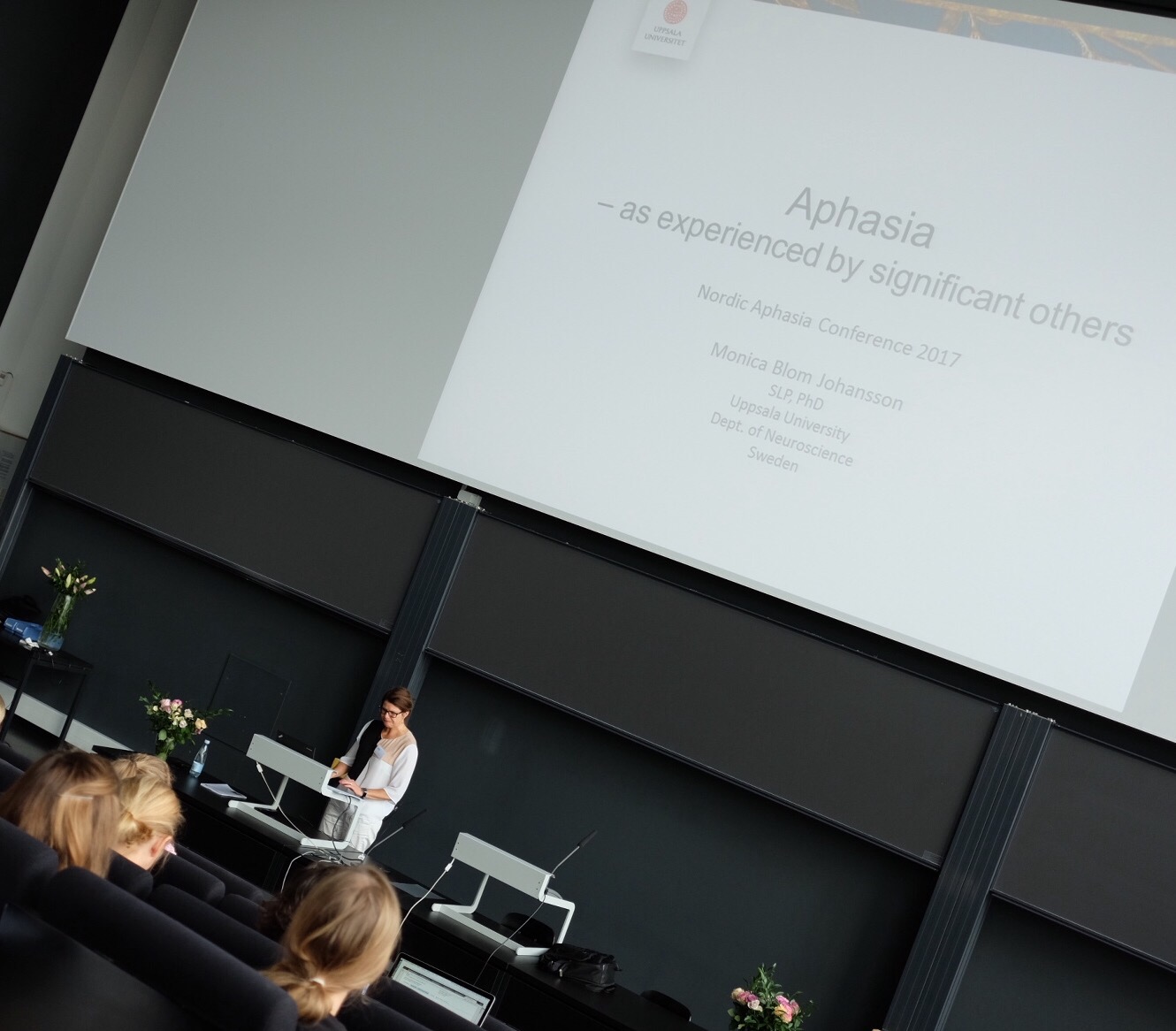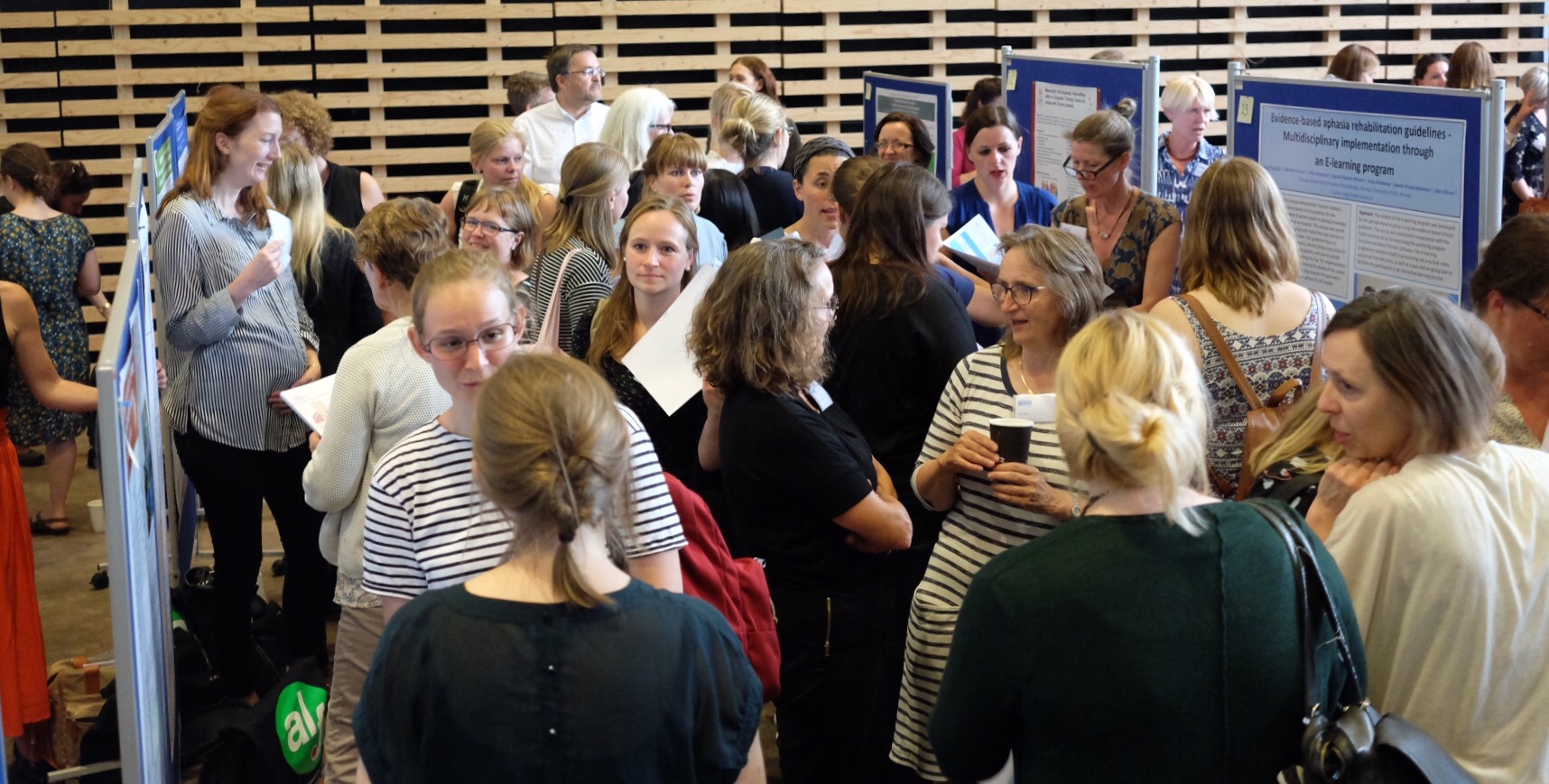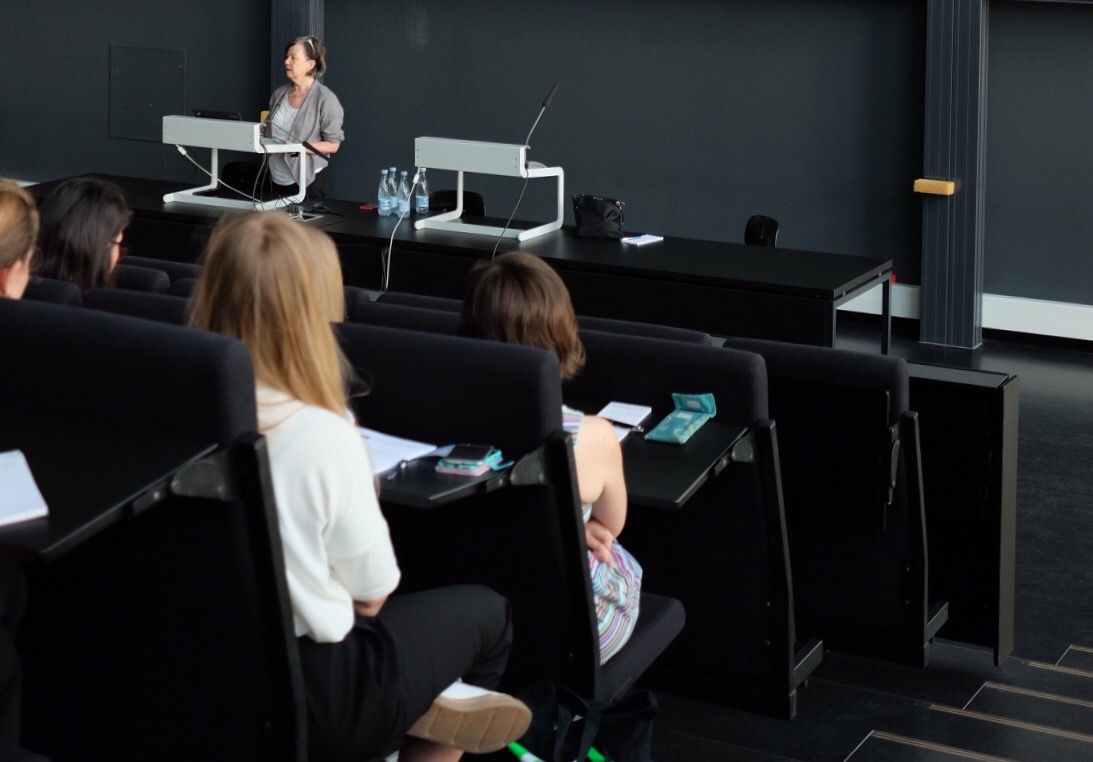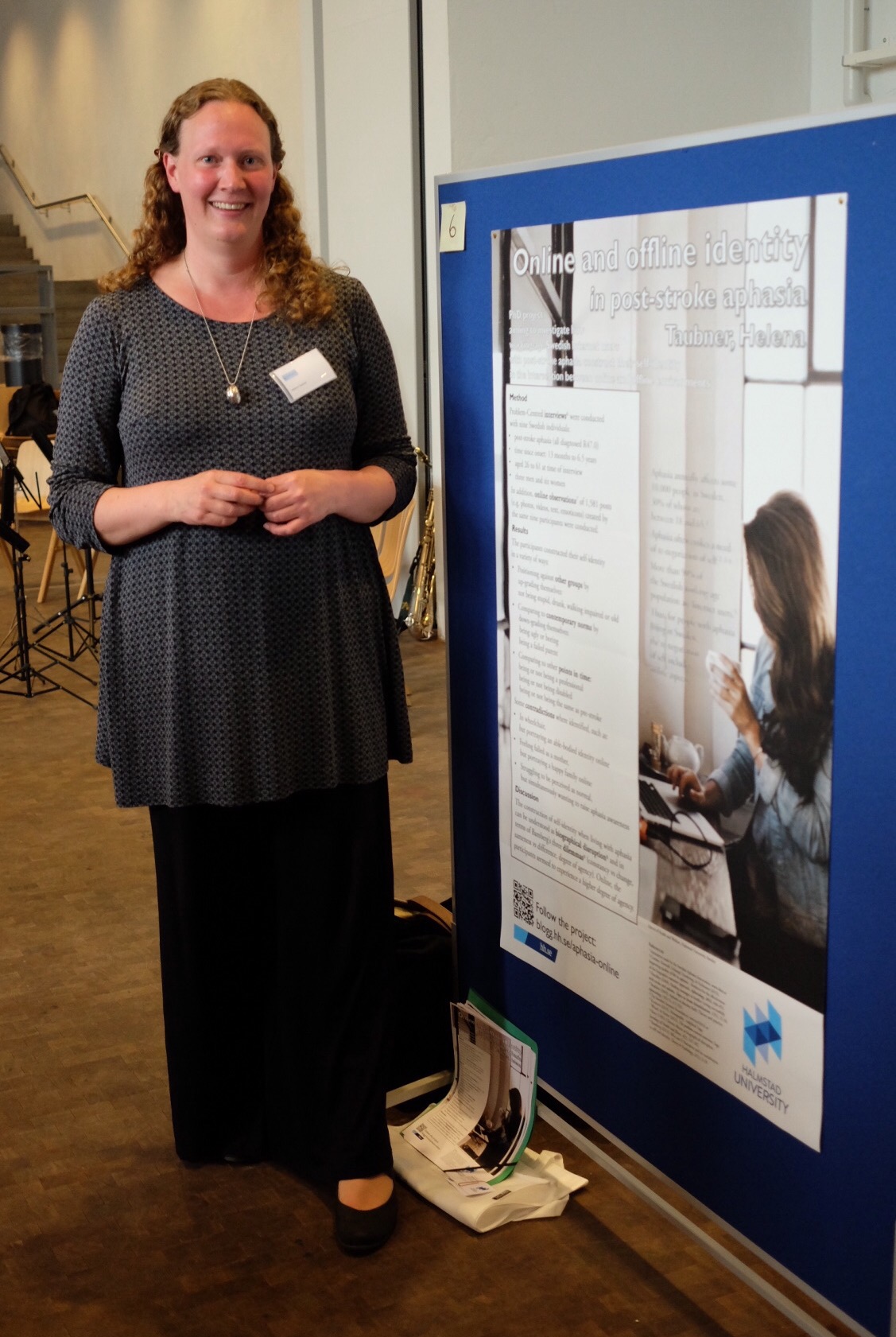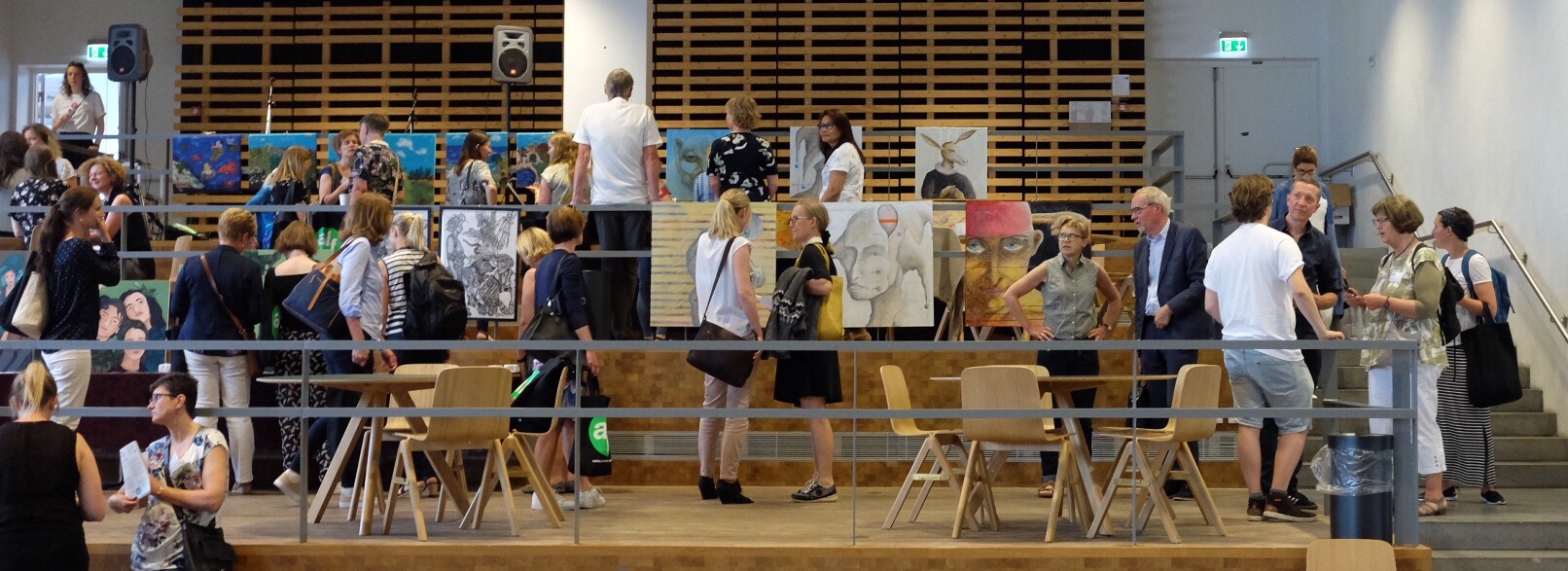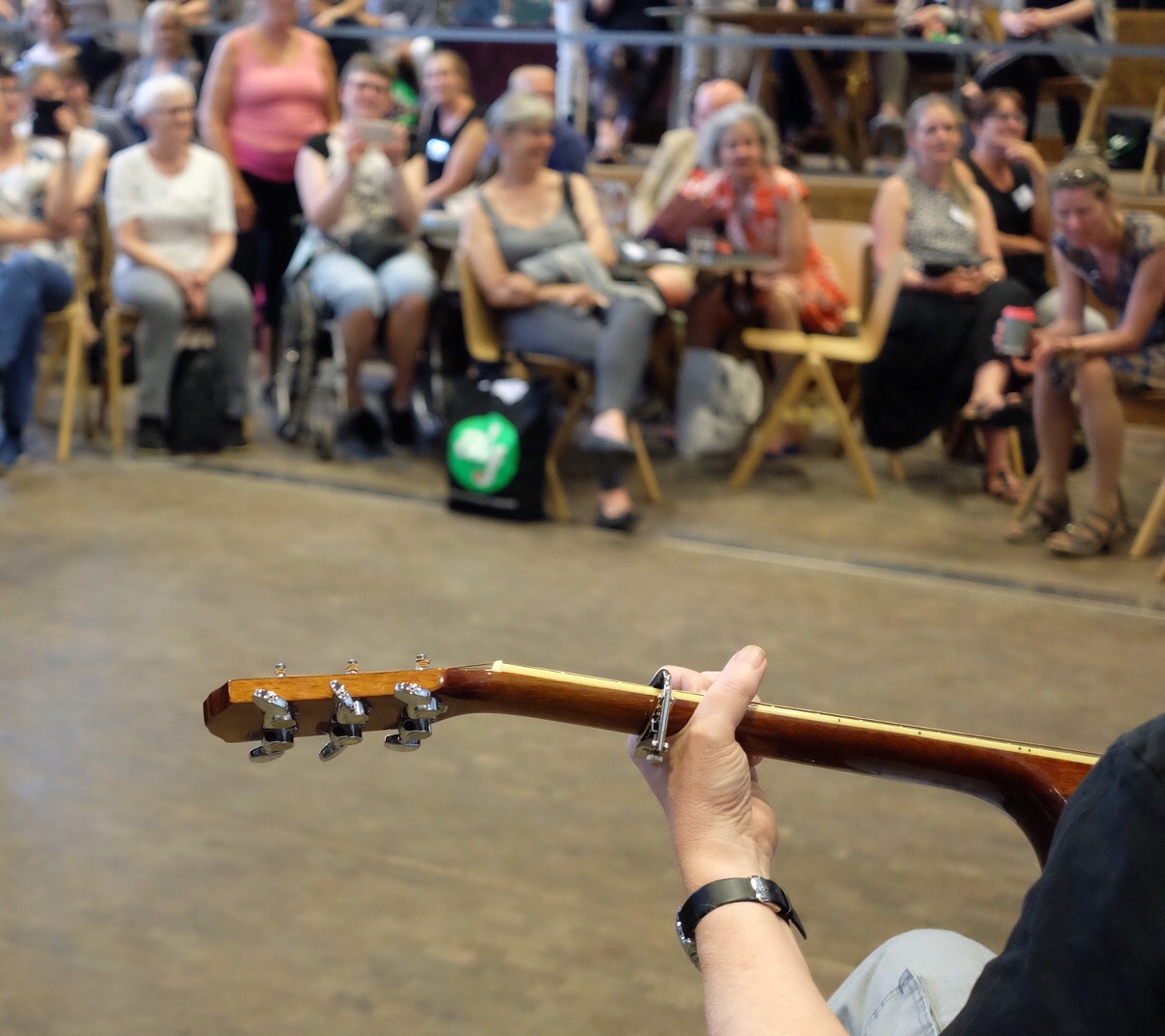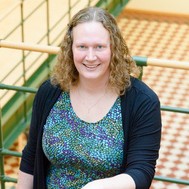Idag, den 10 oktober, är det ”Europeiska afasidagen” och därför uppmärksammas afasi lite extra runt om i Sverige och i Europa. Själv sitter jag och skriver, och försöker samla tankarna kring alla berättelser som jag har fått ta del av under de senaste årens avhandlingsarbete.
Det är med stor tacksamhet jag tänker på ”mina” deltagare. Malin, Einar, Johan, Claes, Ove, Joakim, Maria, Frida, Ellen, Sofia, Dennis, Anette, Per, Ulla, Monica, Oskar, Rosa, Selena, Anders, Kalle och Pia – utan er hade mitt drömprojekt aldrig kunnat bli verklighet! Därför vill jag uppmärksamma afasidagen genom att lyfta fram er. Ni är stjärnor, allihop!
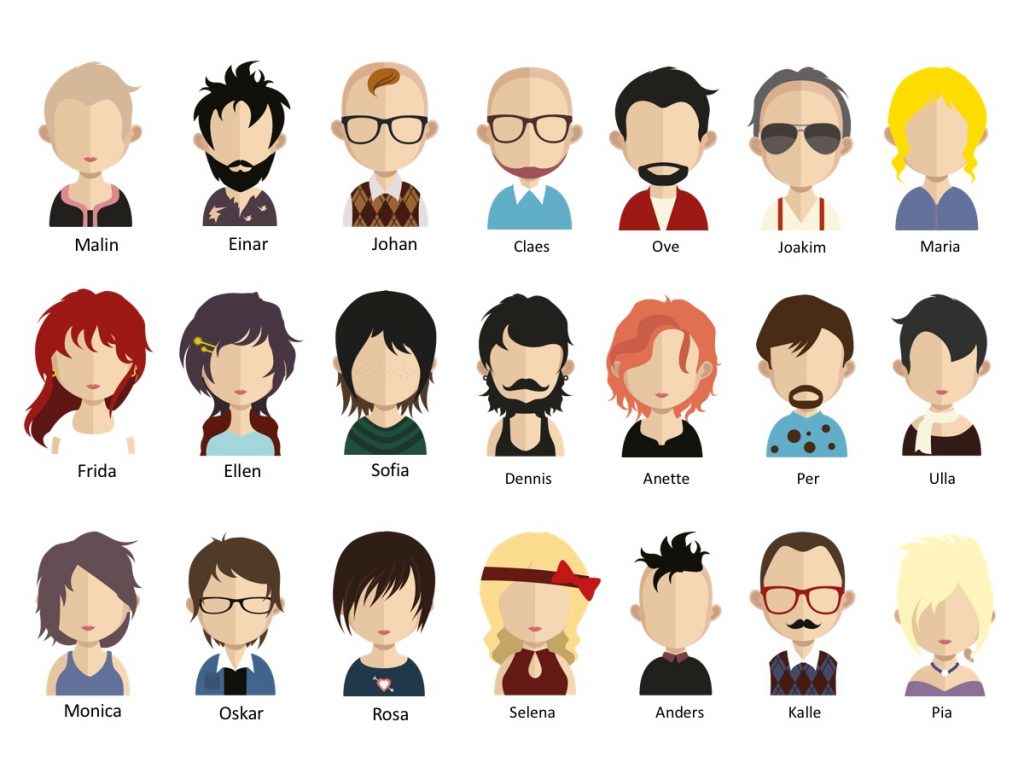
Afasiförbundet har gjort en lista över olika inslag i media med anledning av Europeiska afasidagen. Missa inte den!
(PS. Deltagarna heter självklart andra namn i verkligheten.)

